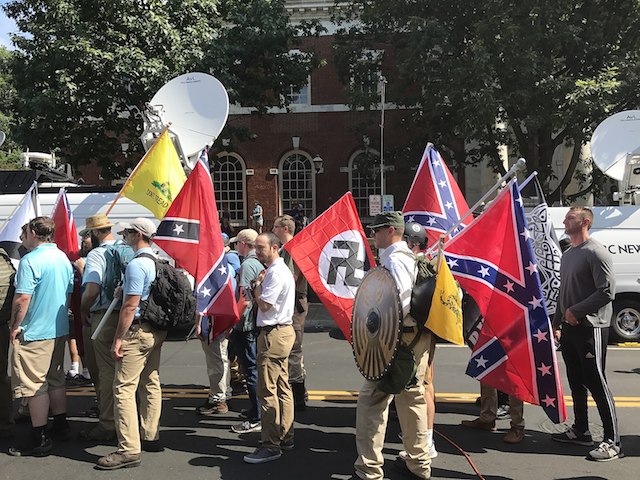
Recent social unrest in the United States has highlighted our incompetence in dealing with misfits.
We immediately dichotomize those who perpetuate the unrest from those of us who suffer the consequences. But, bifurcating the problem this way reflects a lack of social responsibility and tact. Those who engage in social unrest know they are doing it, and we don’t need to tell them. That is exactly what they want.
If I see the disgusting behavior of those enslaved by hate and proud of it, and I denounce them, it will not accomplish anything, because I am stating the obvious. It is like pointing at the sky and saying: “Look, the sky is blue.” No one will listen or care. When we see misfits and point at them calling them “misfits,” we are in essence saying nothing.
When we are the unfortunate witness of the inhuman behavior of those who look for inspiration in the icon of the greatest demon of our time, and our first response is to condemn it, what do we accomplish? This knee-jerk response does not work, as can be evinced by the rise of fringe groups whose roots are in the soil of hate, anger, lack of self-confidence, and so forth.
But, to see disturbing behavior and point our finger indicating as much, will not inspire change; instead it will encourage more of the same. For example, if we had an unruly child, pointing out her unruly behavior will only get her going more. A finger pointing approach, no matter how deserved, is not using skillful means, and will not heal our wounds.
When we do that, we are only giving them recognition and acknowledgment which they crave. They want recognition and will do anything to get it.
When we divide “ourselves” from “them,” we are doing what “they” want us to do. Their low self-esteem, inferiority, and pitifulness could not meet the challenge of distinguishing themselves within the paradigm of our social structure as everyone else does, and so with the lack of intellectual capacity to do anything better, they resort to violence, or grandstanding on some obviously unacceptable doctrine.
We may not like it, but “misfits” are part of our social identity; in other words, they are not different from us as a people, a nation, society, or culture. Thinking and acting otherwise is foolish. It is as if we were diagnosed with cancer and then didn’t accept the fact, pretending that it wasn’t part of our body. This attitude will prevent us from seeing a cure.
We must instead take the disease as part of our otherwise healthy body, and proceed with the right treatment. In an analogous manner, we should refrain from thinking of white supremacists as isolated groups, or fringe groups, and separate from us, and instead recognize them as a disease we all share, being of one nation.
Many areas of the world have cancers in their populace; most recently this was highlighted in Charlottesville. As a nation, how should we react to such behavior? What is the right approach?
In my opinion, the right approach is to refrain from pointing fingers and instead, from the very first response, make a declaration accepting the responsibility as a nation for the evil acts perpetrated. Just as we might explore cancer in our own body, and ask how we created the conditions for disease, we should ask ourselves as a nation how we foster hate groups. The emphasis should be on us, not them.
And, us should include them.
When we get away from knee-jerk responses of condemnation, to more thoughtful inquiries into our national responsibilities, we take the limelight off the cancers of our society and rob them of the recognition they crave. A reflective well thought out approach, wherein we accept our social diseases as an unfortunate consequence of some fault within ourselves as a society, we are far more likely to discover the cause, and tackle the hatred among us in an effective way.
Religious pioneers from all traditions have often echoed the words of Christ when he said that the speck that is in your brother’s eye, is also in your own eye. We are suffering as a culture in America, as much of the world is grappling with the same problems. The question is how to be effective in dealing with people who feel incredibly inferior and seek recognition through disenfranchising themselves socially. They should be regarded as a national disease, and treated by making the entire nation healthier, just as we might treat cancer in our body by making the whole body healthier.
We cannot solve a problem by isolating it because that is not accepting responsibility. We must free ourselves of biases when examining the problem, however well deserved our biases may be. It may be deeply hidden, but as a nation, it is our responsibility to dig deep and uncover our culpability that allows the formation of the aberrations we are witnessing on ourselves as a nation.
But, challenges are what make us stronger, and when we pull together as a nation and accept the challenge, we can overcome all obstacles.
~
~
~
Author: Richard Josephson
Image: Wiki Commons
Editor: Travis May
Copy Editor: Nicole Cameron
Social Editor: Danielle Beutell











Read 23 comments and reply